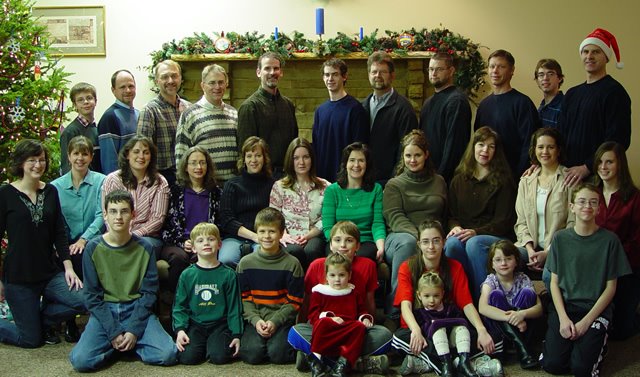
The following is the answer to an email I received asking about us and how to take steps to form a mission community. I get this question on occasion and so I thought it would be good to post my answer here.
Our community began as a number of us were involved in missions. About half of us were involved in missionary work oversees and in urban settings, but based out of here in NJ. In the late 80s there was a renewal movement of God in our ranks that awakened us to our need for a deeper experience of Christ. We had always been big on commitment to Him and to His work, but through this time of revival He started to convict us about our commitment to His people. We were very involved in evangelism and ministry to the poor and needy, but we felt a lack when it came to living out the truths of the gospel among ourselves. That’s when we felt God was leading us to “throw our hats in the ring” together and begin to share finances and truly take liability for one another as brothers and sisters in Christ. We now see the Christian life as a total commitment to Christ, His people, and His work.
Community is basically about being in love with God and each other. It can’t be for something, just like a marriage can’t be for something. Your marriage is its own justification. It’s part of God’s will and a good in and of itself. You’re not committed to “marriage” you’re committed to your wife. You love her. She is important in her own right. Your love together has meaning. So with community, the church is God’s will and is a good in and of itself. We don’t commit to “community” we commit to real, tangible, wonderful, and flawed people in the community. They are important enough for me to commit my entire life to them. And just like marriage, out of that love children are produced, namely, ministering to the lost and needy. The love for each other overflows to the world around you. It would be unhealthy to marry for the express purpose of having children. Children are a part of marriage, but not the reason for it. They are a natural consequence of a couple’s love. So, reaching out to the world around us should be a natural consequence of the love of the brethren. Some think that ecclesiolgy is a subcategory of missiology. I think that is incorrect. Missiology is a natural consequence of ecclesiology.
I keep coming back to this thought: whenever I think of our work or the community in general I remember that it’s really about the specific people in our community, not about some ideal. I must have a zeal for them, for their welfare, for their uniqueness, for them as my friends. If I don’t have this, I truly believe I don’t have a whole lot to offer in the way of spirituality. My experience has been as I’ve traveled quite extensively in the church is that the one thing that seems to be the hardest to do is radical commitment to other brothers and sisters. People will go to the end of the earth and live in crushing poverty, they’ll give lots of money, they’ll do almost anything than fully pour out their life for another brother or sister. Commitment in the church just doesn’t seem that important. But the truth is, it is the key thing God is trying to do in the world and that’s why it is so aggressively opposed by Satan.
Once that issue is clearly settled (and that’s not an easy thing) then consideration of how to touch the world around us can be done with clarity. As we incarnate in the world we have something to point to, “Hey, this kingdom of love and healing…look this way (pointing to the community), it’s kind of like this. See how we love one another, see the lack of competition, see the acceptance, see the care for one another…that’s what we’re talking about.” The mustard seed of the gospel becomes a large tree that the birds of air (the poor and needy around you) take refuge in. Can this be done in the suburbs? Absolutely. Can it be done in an urban setting? Very much so. It can be done anywhere. It’s all a matter of God’s particular guidance for you as a group. But the focus isn’t the field, it’s the harvesters.
One last thought on this: In order for a community to thrive, the leadership must be the best of friends. They must really like each other, love each other, respect each other, and “throw away the key” commit to each other. I can’t emphasize that enough.